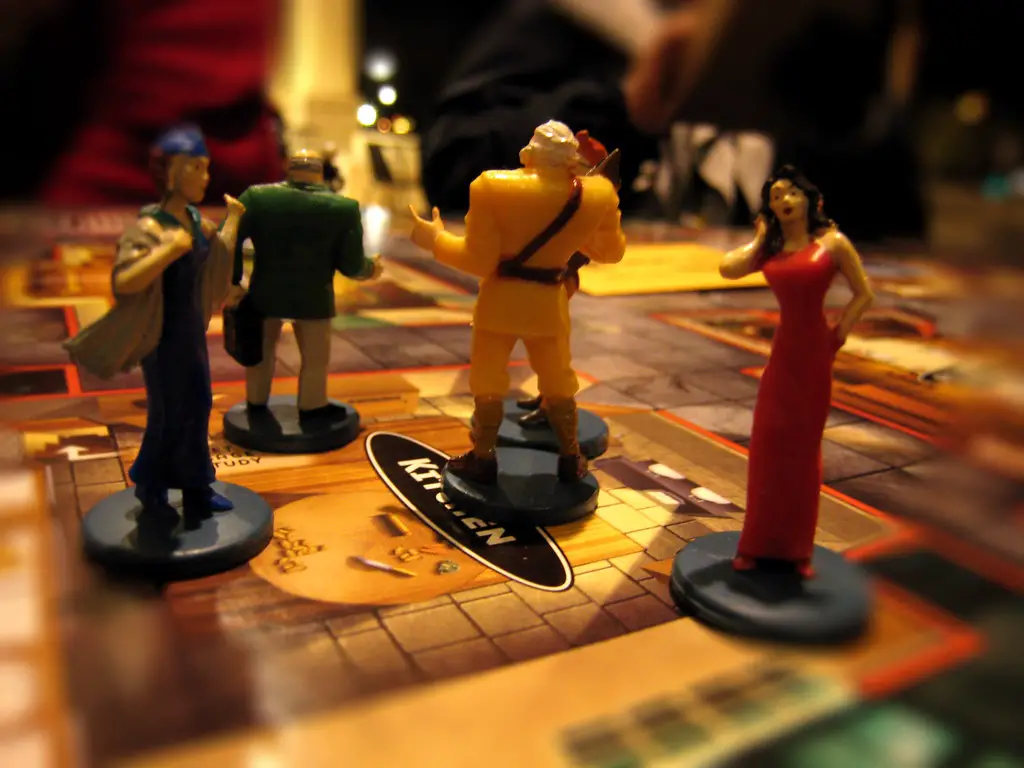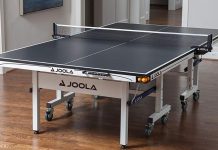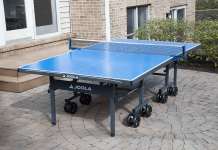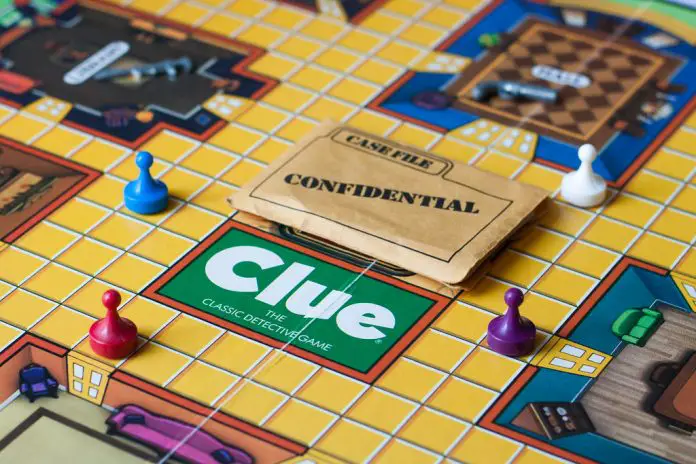“It was Mr. Green in the library with the candlestick.” If you hear this phrase, or something similar, is there any doubt at all that we’re talking about Clue? Clue is one of the most popular board game franchises for players of all ages.
It has many versions, including countless branded versions. There is even one specifically made for children. But if there’s one for kids, it can’t be that difficult, right? Surely anyone can play and win easily?
Clue strategy is actually surprisingly complex considering it’s a game where you just ask questions and walk around a board. But there’s actually a lot more to it than that.
Keep reading to find out all about the tips, tricks, and strategy for consistently beating your friends at Clue. We’ll talk a LOT about strategies for finding out information on EVERY turn, not wasting turns, and taking bunches and bunches of notes.
Table of Contents
I Learned to Beat My Dad in Clue
Clue has always been a big deal in my family. Both my dad and my mother’s dad were in law enforcement. They both thought that Clue was made just for them. We would play all day on many Saturdays.
My dad ALWAYS played as Professor Plum (and as such, now Professor Plum is my preferred character too). My dad certainly won his fair share of games, no doubt. But not as many as you’d expect considering his law enforcement background.
He could never figure out why he would get beaten to the correct answer. I’ve realized that was because he was thinking about the game from a real-world law enforcement perspective. He treated each suggestion in the game as an interrogation. He never learned to play the game from a board game perspective. In the case of Clue, there can be a big difference.
As I grew up, I learned to think about Clue exactly as it is, a board game. I was able to start beating him regularly (which he hated)! I used board game tactics to beat Mr. Big Shot Law Man.
I’ve also tested these tricks against regular friends and family and it beats them as well. That being said, I am confident that if you’re able to apply these strategies to your Clue game you’ll be winning often in no time!
First, the Rules and Game Play
We should remind ourselves of the rules before we get in to strategy. Some of you may not have played for a while. Some of you may even play with “house rules” that may not be the actual rules of the game.
It wouldn’t help very much for me to talk about Clue strategy that doesn’t align with how you play! Let’s make sure we’re all on the same page. What’s described below are the rules as they’re listed in the official rule book of the standard version of the game (not a branded version or the “Clue Junior” version for kids).
Game Board Setup
- Start with each suspect token on its assigned starting space (you can tell because the color of the space matches the color of the piece), and place the weapons tokens in random rooms. The weapons tokens are not absolutely essential (so don’t worry if you lose some). They’re just for a visual reminder of the suggestion. Nothing in the actual game play requires the weapons tokens.
- Sort the cards in to each of their types – separate piles for rooms, weapons, and characters. Shuffle them up and select one from each category, but don’t look at them! Place these cards in to the Case File envelope. These are the cards you’re trying to discover.
- Shuffle all the cards together into one pile. Deal them out to each player until they are all passed out. Some players will have one more card than other players. Unfortunately you cannot control that – there will usually be a few odd cards that can’t be divided evenly. You can look at your cards at this point and mark them off of your notes as not being possibilities for what’s in the Case File.
Game Play
- Play now begins. Every game starts with Miss Scarlet (ladies first!) and continues clockwise (to the left) from there. By that I mean to the human to the left of whoever is playing as Miss Scarlet. Each player rolls the dice and moves in to a room, or as close to one as possible.
- To make a suggestion (the guesses you make to find out more information), you must be in a room. Once you are in a room you can make a suggestion, which includes any weapon, any character, and the room that you’re in. That is important – you cannot make suggestions about rooms that you are not in. You must then move the suggested character in to the room that the suggestion happens in. This even applies to tokens for human players playing the game.
- Start with the person on your left. If that person can disprove your suggestion based on the cards they hold, they must show you one of those cards to prove that your suggestion is incorrect. If that person has more than one card to disprove your suggestion, they only need to show you one. They can choose which card to show – you don’t get to choose which one. Once someone shows you a card, your turn is over and no one else has to show you any cards.
- Play continues in this manner until someone is ready to make a final accusation. Once a player makes an accusation, they can look in the Case File to see if they were correct. If so, the game is over and they win! If not, that player is eliminated and game play continues with the remaining players.
Clue Strategy for Winning the Game
So now that you remember how to play, I need to teach you how to win! It’s not quite as easy as just finding the answers more quickly than everyone else, although that is the goal.
The key is learning how to find the answers more quickly than everyone else. Sometimes you can get lucky, but more than anything your specific Clue strategy will help you. Keep reading to find out the best ways to get the correct accusation before everyone else.

1. Use your cards to force the answer you want
There’s no rule stating that your suggestion can’t include cards in your hand. For example, let’s imagine that you really need to find out which weapon is the murder weapon. You want to make sure that no one can show you character or room cards when you make your suggestion. Go to a room that you have the card for, and suggest a character that you have the card for.
This will force your opponents to show you the weapon you want to see.
This works for all categories. You can do the same with characters and rooms as well. This is the best piece of Clue strategy there is. It allows you to get a new piece of information on every single turn. Any turn where you don’t find out something new is a turn completely wasted.
Example
Imagine you want to find out if the Rope was used in the murder. You should go to a room for which you hold the card in your hand. When you make your suggestion, make sure that you use a character for which you hold the card. And finally, use the Rope in your suggestion. “I suggest the Rope (a card you don’t hold) in the Hall (a card you hold) by Colonel Mustard (a card you hold).”
In this case, no one can show you the Hall or Colonel Mustard since you have both of those cards. If someone shows you the Rope, you have your answer – it wasn’t the Rope. You can then mark off the Rope on your note card and you know you need to move on to the next weapon. If no one can show you the Rope, you have your answer there too.
It means the Rope is the weapon that killed Mr. Boddy! You can then mark off every other weapon and try to find out the suspect or the room.
2. Concentrate on one thing at a time
It rarely makes sense for you to throw out suggestions for which you hold none of the cards. This makes your suggestion too broad. Occasionally at the beginning you can do that – any information can be good at that point in the game. But pretty early in the game you want to start to focus your questions to looking for only one piece of information at a time.
Good Clue strategy dictates that you want to find information as quickly as possible. If your suggestions give your opponents too many options to show you cards, you may not find out very early what is in the Case File. You may also get duplicate cards shown to you.
Example
Concentrating on looking for the weapon, for example, you could find out in your first suggestion which weapon was used. If you suggest the Knife and no one can show it to you, then you know what is in the Case File!
Alternatively, if you make a suggestion where you hold none of the cards, someone is almost certain to have a card to show you. This isn’t the worst thing, but it makes it harder to quickly narrow down your search.
3. Notes, notes, notes
It is very important to take detailed notes. Not just notes about what cards are shown to you, but who showed them to you. What you’re trying to avoid is having someone show you the same card multiple times.
It is legal to show the same person the same card as often as you want. Make sure none of your opponents can do that to you. If you take good notes and you know who has shown you which cards, you can avoid seeing the same card multiple turns.
By the same token, it’s in your best interest to show as few of your cards to your opponents as possible. Take notes as to which cards you’ve shown to which opponents. That way if they make the same suggestion, you have a chance to show them a card you already have shown them. Then that person has wasted a turn by not gaining any information that they didn’t already have.
Winning is about finding out as much information as you can before your opponents do the same. If you can gain information on your turn while making sure your opponents don’t get new information, that is the formula for success.
Example
You suggested Mr. Green with the Rope in the Hall. You previously suggested Mr. Green and the player to your left showed you that card, and now she’s showing it to you again. In this case you’ve wasted a turn by getting information you already had.
4. Ignoring the secret passages is poor Clue strategy
The passages in the corners of the house are the best way to get around. Trusting the dice to get you everywhere can be a very dangerous proposition. As we’ve discussed, the best Clue strategy is to get at least one new piece of information on every turn. If you’re wandering around in the passageways between rooms, those are turns that you can’t use to find info.
Using the secret passages allows you to go to multiple different rooms very quickly. This also allows you to get to the other side of the house quickly if you need to.
On the standard Clue board, the Lounge and Conservatory connect to each other, as do the Study and the Kitchen. Using these secret passages will allow you to get around the house without wasting turns walking across the house.
Example
When doing this, you need to think 2-3 turns ahead. Say you’re in the Billiard Room and need to go to the Dining Room. Sure, you could roll the dice a few times and end up getting there.
The smarter way is to go through the Conservatory, connect to the Lounge, and then go to the Dining Room. This will use fewer spaces that you need to roll, and you get a few turns in some rooms on the way. This gives you a chance to make two more suggestions. Remember – never waste a chance to get information!
5. Use your suggestions to hinder your opponents
Remember in the rules when it says that the suggested character has to move to the room where the suggestion is made? If you think an opponent is really trying to get to a specific room, stop them! You can use your next suggestion to move them all the way across the house. Doing this may slow them down and stop them from getting information that they really, really need.
If you’re going to use this Clue strategy, you have to be careful to balance it. You have to make sure you get new information. Using this strategy too much may give your opponents a chance to show you the same card multiple times.
We want to avoid that scenario. Use this strategy, but use it sparingly. Once or twice per game at most should be enough to slow down your opponents. This also ensures that you’re not wasting turns for yourself.
Example
You notice that your opponent Miss Scarlet is trying to make her way to the Kitchen. You’re worried that she’s close to making an accusation. If you’re on the opposite side of the board, say the Library, you can accuse Miss Scarlet. This forces her far away from the Kitchen and gives you more time to beat her to some important information.
6. Make rooms your priority when crafting your Clue strategy
You can find out about weapons and characters no matter which room you’re in. But finding out information about rooms is limited by your location. Because of this, it can be very slow-going to find out which rooms can be eliminated.
It is difficult to narrow down which room the murder was committed in. Discovering this information early in the game is beneficial, so concentrate on that. It will also then be easier to move to rooms that you know won’t interfere in your suggestions, as you’ll know who is holding which room cards.
Once you have discovered the room that is hidden in the Case File, it is much easier to find the other two pieces of information. There are fewer weapons and suspects, and you can ask about any of them no matter which room you find yourself in.
7. Use your opponents’ suggestions against them
Your opponents’ turns are not time to check out and have a brain break. It is very important to use this time to gain information. Paying attention to what your opponents suggest can give you a lot of very useful information.
If you have an opponent who suggests the same weapon on multiple turns in a row, that could mean two things.
One, it could mean that your opponent holds that card. They’re trying to find out additional information about a different category.
Or two, it could mean that no one has been able to disprove that suggestion by your opponent. Use that information to find out if that player is holding that specific card. If they’re not, it’s very likely that card is in the Case File.
You can also use your notes to find out information about your opponents’ accusations (see example 2 below).
Examples
- You’ve noticed your opponent suggest the Candlestick three turns in a row. You should suggest the Candlestick on your next turn. This will tell you if your opponent is holding that card by forcing them to show it to you.
- Let’s assume that you know an opponent is holding the cards for Professor Plum and the Kitchen. They then make an accusation of “Professor Plum in the Kitchen with the Poison.” If someone shows them a card to disprove their suggestion, you know that it MUST be the Poison because you know they’re holding the other two cards. That gives you important information when it wasn’t even your turn! This is good use of your time.
8. Watch where your opponents take their notes
When someone makes a suggestion and is shown a card, watch them as they take down the information. If they write near the top of their note card, it was likely a suspect. If they write near the bottom, it was almost certainly a room that they were shown.
Now, I need to be clear. I’m not suggesting that you make an effort to actually look at their note card. That would be cheating of the highest order. I’m simply advising you to try to watch where they’re making their marks.
Just look at where their hand or pencil is when they take note of what they were shown. That will help to tell you what card they may have been shown.
Of course, one of your opponents may be careless and accidentally show you their note card. It’s not your fault if you look at the information that they have. Just don’t go trying to cheat by intentionally looking at their cards or notes.
I used this trick to beat my grandfather once. I was waiting to find out the last room I needed before I could make an accusation. When he made his next suggestion, it was one of the rooms I needed information about.
I noticed that he marked off the bottom of his note card, so I knew that he had been shown that room card. I was able to eliminate that room and beat him to an accusation!
9. Your opponents may be using this Clue strategy too
You’re watching your opponents. You have to listen to what they say in order to gain information about what they know. You’re also listening for what they don’t know. Do you really think that they’re not doing the same to you? Use that against them!
What am I saying? Bluff! No matter the game, bluffing is always good strategy. However, bluffing is an especially good Clue strategy. Act like you may have a card when you know that you don’t. Act like you don’t have a card when you know that you do. How would this work in practice?
After one of your opponents makes a suggestion, start shuffling your cards. Act as if you’re looking for a card that you’re going to show them. If your opponents are paying attention this may make them think that you have one to show.
You can do this in the reverse as well. If you know you have a card to show, don’t start looking for it yet. Wait until it’s your turn to possibly show that card. Don’t start looking for it too early, as that lets your opponents know that you have a card to show.
Bluffing isn’t just restricted to cards. Idle chit-chat is also a good time for bluffing. Maybe you can let out an off-hand comment about how you think the Revolver is the weapon when you know that it isn’t. This can get your opponents thinking, and wasting their time worrying about pieces of information that aren’t true.
Summary of My Clue Strategies
I know – this is a lot of information. Until all of these tips become habits when you play it may be hard to remember every single tip I’ve given you. As such, it may be helpful if we boiled this down to just a few easy-to-remember hints for winning.
The absolute most useful tip I could ever give you about Clue strategy is to never waste a chance to gain info. Every time someone talks (or doesn’t talk!) it is an opportunity to find out something about what they know. Especially if they’re like my 10-year-old son and sing like a canary about every single thing that they discover. He gets so proud of himself if he finds out the weapon that was used!
But most people aren’t quite as obvious as him. Listen to their suggestions, as everything they ask can give you a clue (pun intended) about what information they already have. This can also tell you what information they may still be looking for.
Don’t waste any turns. Don’t spend time walking across the entire mansion. You could be using secret passages or stopping at other rooms along the way. Any turn that you don’t make a suggestion is a wasted turn. If you end up stuck in a passageway waiting to roll the dice again, you’re wasting time.
Finally, take notes. Take too many notes. You’d rather have more info than less info. Even if you write something down and never use that note again, that would be better than trying to remember something that happened earlier in the game and not being able to remember it because you didn’t write it down.
Clue is one of the hardest games to consistently win for most people, because they tend to think that it comes down to pure luck. Nothing is further from the truth. There are so many useful strategies to being a successful Clue player.
Using even one Clue strategy you’ve read here will help your chances. Using many of them will help you win more often than not. Making habits out of all of them will make you nearly unbeatable. Good luck!

Veronica is a Green Bay-based freelance writer and editor with extensive experience with board games. When not busy scribbling her thoughts, you might find her in her garden, hiking out in the woods, or exploring new food joints.
Veronica is a die-hard board game and chess hobbyist by night. She likes to try out new games and is always on the lookout to recruit new players for her game night (so beware!). When not playing board games or throwing darts, she is usually busy painting miniatures (or doing other nerdy stuff).
She is the CEO & Content Writer of Indoor Games Zone. She shares her expertise from years of playing chess, board games, and darts.

![Stiga XTR Pro Review | 1,559+ Global Ratings (In-Depth Guide) [year] Stiga XTR Pro Review](https://indoorgameszone.com/wp-content/uploads/2021/08/Stiga-XTR-Pro-Review-218x150.jpg)







